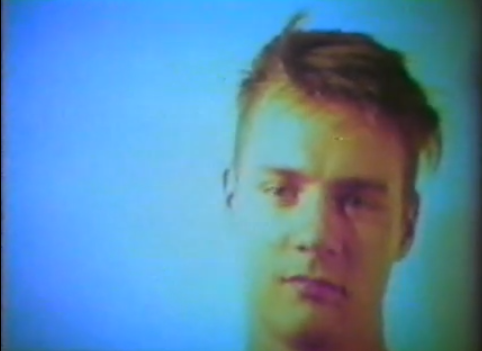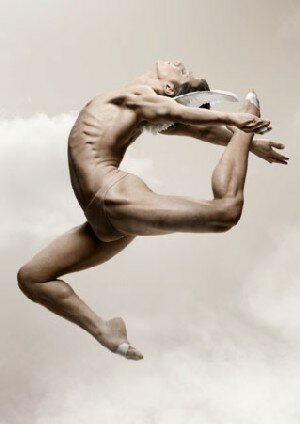You know the music that comes on to inspire every Mariner batter as they walk to the plate? It hasn’t been working. Mariner hitters have been dreadful at Safeco Field, saddening Mariner fans like me, you, and music journalist Mark Baumgarten. When not suffering through low-scoring Mariner games, Mark has spent the past year-plus writing the story of Calvin Johnson’s K Records, the galvanizing force behind Beck, Modest Mouse, the grunge scene, and the riot grrrl movement. With his book Love Rock Revolution: K Records and the Rise of Independent Music coming out today, I gave Mark this challenge: Pick the K Records songs that will galvanize Mariners hitters and get Safeco rocking. Here are his indisputable picks.
Ichiro
“Bewitched” by Beat Happening, from Jamboree (1988)
[:00 – :10]
I know that Ichiro likes the club hits. For a while he was bumping that Flo Rida song. More recently he has been grinding his spikes into the dirt to LMFAO’s “Sexy and I Know It.” “Bewitched” is the ultimate K party jam from the label’s cornerstone band. It’s a little grittier than those slick pop tracks, and its beat is much more primitive, but maybe a little d.i.y. can help the the M’s “first-ballot Hall-of-Famer” manufacture a few RBI’s.
Michael Saunders
“Birds vs. Worms” by Modest Mouse, from Sad Sappy Sucker (2001)
[:07 – :17]
On this moderately upbeat track, songwriter Isaac Brock contemplates self-pity as a catchy guitar line whiles away. Like Brock, Michael Saunders has always seemed burdened by a great existential weight. Unlike Brock, Saunders tends to keep his emotions bottled up, only sometimes exploding by violently throwing his batting helmet to the ground, post-strikeout. Deep within his intensity there is a sadness. So let’s play him on with the music of a kindred spirit. You are not alone, Michael.
Jesus Montero
“C is the Heavenly Option” by Heavenly (featuring Calvin Johnson), from De Jardin de Heavenly (1992)
[2:35-2:45]
The subject matter of this song–lead singer Amelia Fletcher and Calvin contemplating what to do with their disappointing significant others–has nothing to do with baseball. But its titular chorus might help motivate Montero to get in front of those passed balls and ward off recent draft pick Mike Zunino on his way to becoming the power-hitting franchise catcher the Mariners had hoped he would become when they acquired him from the Yankees in the offseason. Plus, I hear manager Eric Wedge loves a little shimmying twee pop and it would be nice to see him smile every once in a while.
Dustin Ackley
“#1 USA” by Love as Laughter, from #1 USA (1998)
[3:26-3:36]
I have long been a proponent of Ackley dropping Lynyrd Skynyrd’s ode-to-humility “Simple Man” as his warm-up music. Yes, you are a simple man, Dustin, and we love you for it. But you are a professional ballplayer, sir, and that requires a little swagger. This track from K’s best-ever melodic garage rock group is dripping with infectious riffs, hand-claps and tons of slump-busting attitude. I mean, look at the title, man!
(there’s no full version of this song online; there is a sample here.)
Justin Smoak
“It’s All In Your Mind” by Beck, from the One Foot in the Grave outtakes (1995)
[:20-:30]
Yeah, this song is super depressing, but honestly so is Justin Smoak. He was supposed to be a great steal from our division rival Rangers. But every time he comes up to bat, I just know that he’s going to pop up to shallow left. I don’t know what his current walk-up song is, but it’s not working. Why not give a lo-fi indie rock gem a try? There could be worse things to hear, as you’re preparing to hit that damned ball, than Beck’s languid voice repeating, “It’s all in your mind.”
(this version is a rerecording from Beck’s 2002 album Sea Change)
Kyle Seager
“Virginia Reel Around the Fountain” by Halo Benders
[:00-:10]
This is my favorite song in the K catalog, a performance of epic proportions filled with guitarist Doug Martch’s meandering guitar parts and pinched tenor, contrasted with Calvin Johnson’s sonorous, monotone baritone. I am bestowing it upon Seager, currently my favorite player on my fantasy baseball team, in hopes that it will inspire him as it has inspired me. If it doesn’t, I’m going to have to start Pedro Alvarez in his place.
Franklin Gutierrez
“Free Again” by Teenage Fanclub, from “Free Again”/”Bad Seeds” 7” (1992)
[:07-:17]
A boisterous cover of Alex Chilton’s classic pop track from 1970, “Free Again” returns over and over to the joyful refrain: “I’m free again, to do what I want.” I have to imagine that that is exactly how Guti feels every time the injury-prone center fielder is fortunate enough to step into the batter’s box. Sure, he will eventually be stabbed in the shoulder by an errant broken bat and locked up in rehab, but for now, he’s free!
Miguel Olivo
“The Glow pt. 2” by the Microphones, from The Glow, Pt. 2 (2001)*
[:00-:10]
This song is a masterpiece of indie rock. It is discordant, melodic, hard-hitting and nuanced; the most sophisticated piece of music ever to appear on K. It is also fraught with trepidation and hope, somewhat unpredictable but always engaged, and never taking itself too seriously while delivering till the end. These are the attributes the team need in its leadership. Olivo is the closest thing the Mariners have to a veteran leader (in the field), so he will be the one walking out as the rattles, rumbles, and buzzes that kick off the song fill Safeco with electricity.
Brendan Ryan
“Connect 5” by KARP, from Suplex (1995)*
[:00-:10]
One of the few actual sports songs in the K catalog, “Connect 5” is about a roller derby great named Bobby Fever, “the master blaster from the past” who is a lot like our spunky shortstop. “A pirouette to please his fans,” sings Chris “Slayer” Smith. “He’s pumpin those adrenal glands.” Ryan will step into the batters box just as the song’s plaintive guitar line gives way to a bombastic beat and a grungy guitar riff worthy of whatever creative facial hair is festooning his mug at the time.
Felix Hernandez (National League parks only)
“What Was Me” by Calvin Johnson, from What Was Me (2002)*
[:30-:40]
On the face of it, this song—a strummy acoustic number—is a bit of a downer. But it is a perfect fit for Felix, a ballad for the king of K’s from the king of K. “When I’m done you’ll find an Illiad, believed in every heart and known in every head,” Calvin sings. “And that will be me.”
*These songs are available on Love Rock Revolution: A Book Soundtrack, available for free from K Records until July 17.

